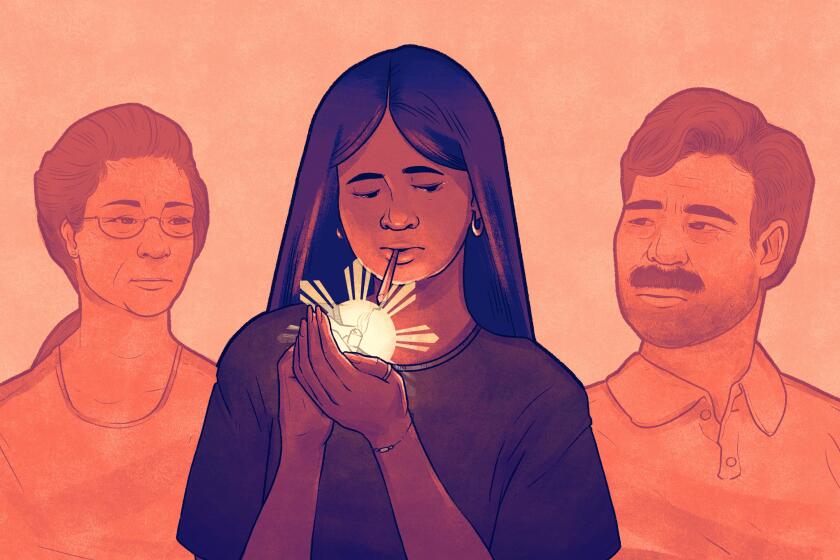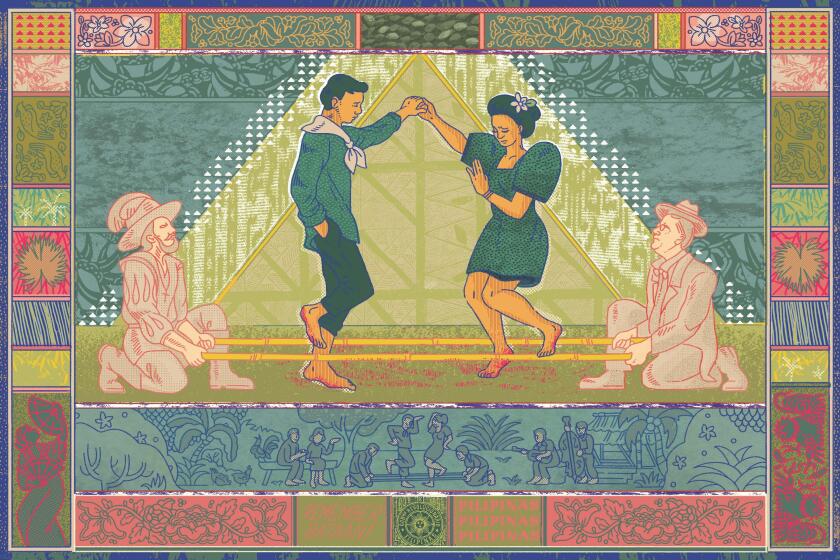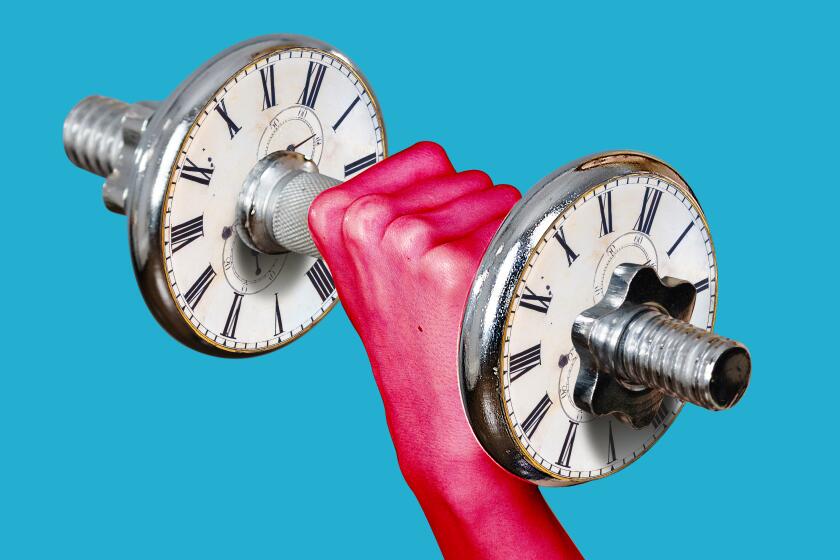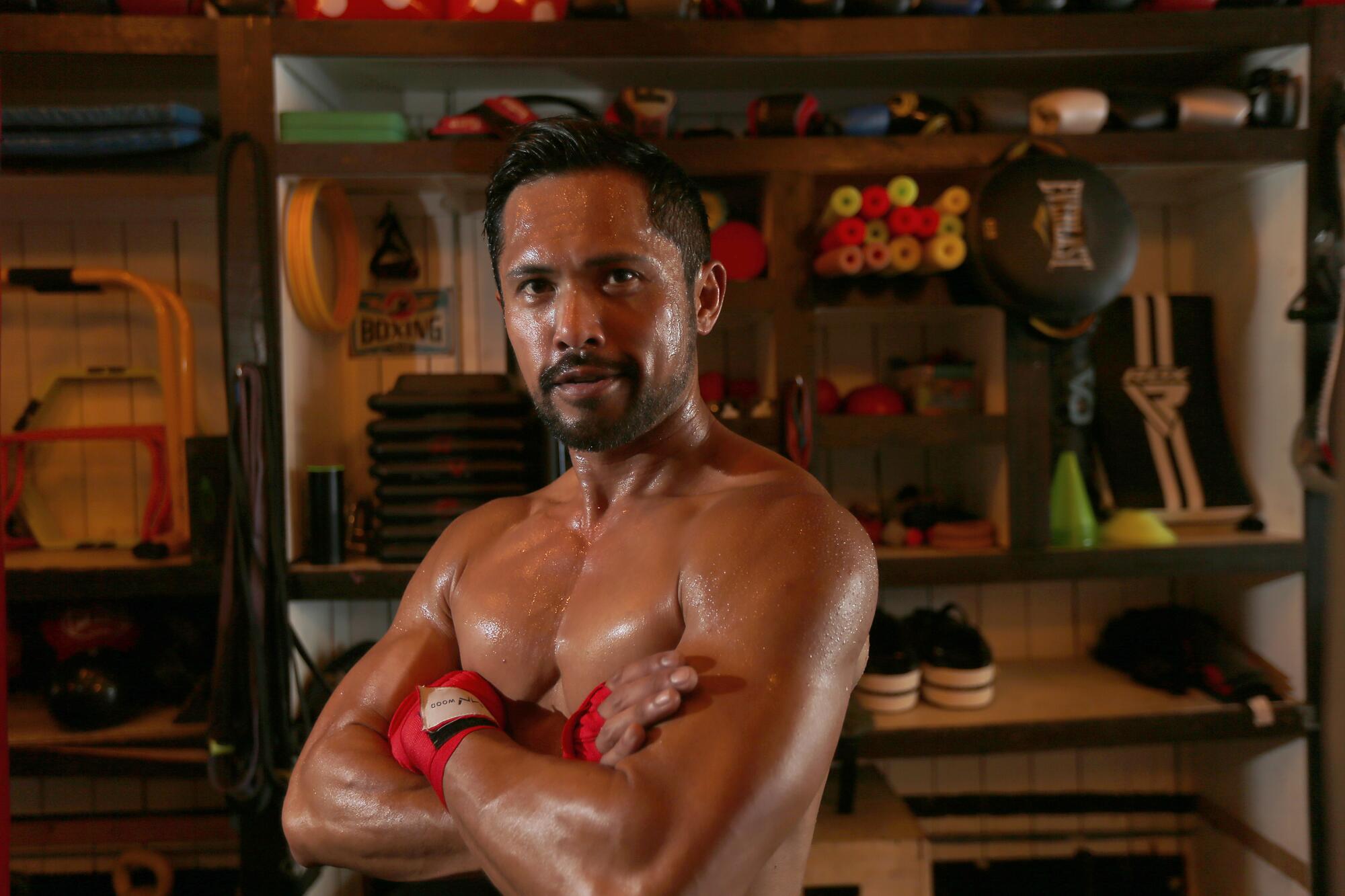
Joel Relampagos started learning how to box earlier this year when he turned 40. He wanted to enter a new decade in the best shape of his life, but also found that high-intensity circuit training helped with his mental health.
Whether he’s throwing hooks into a punching bag, pushing a weighted sled or doing drum rolls with battle ropes, he’s forced to focus on the present moment. By the time he’s done, he’s dripping with sweat — but less anxious, more at peace.
For Relampagos, it’s an important reminder that it’s OK, even necessary, to let yourself be uncomfortable — to feel the pain and learn how to move forward. That has also been important in his recovery from alcohol addiction and how he is giving back and helping others.
Research on substance use among Filipino Americans is sparse. Along with treatment, talking about it is an important step in helping people recover.
Sept. 22, 2022, marks three years of sobriety for Relampagos, an executive producer of “The Biggest Loser” who has worked on “Hell’s Kitchen,” “Going From Broke” and “Pimp My Ride.”
Before Relampagos went to rehab in 2019 at age 37, he’d been drinking for 17 years. For the five years before he got help, he was drinking two bottles of wine a night at home by himself.
“I’d see people at dinner stop at one glass of red wine,” he said. “And I remember thinking, ‘There’s no way I could stop at one glass.’”
His addiction was easy to hide because he’d wake up the next morning, go to set and still run a TV show. At family events, he’d play the role of a good Filipino American son and not touch the alcohol. But after he left, he’d head to the liquor store.
“I didn’t know how to have a balance,” he said. “It’s like an abusive relationship you’re not proud of. But at the same time, you love it, because you feel like you’re not good enough to get anything else in life.”
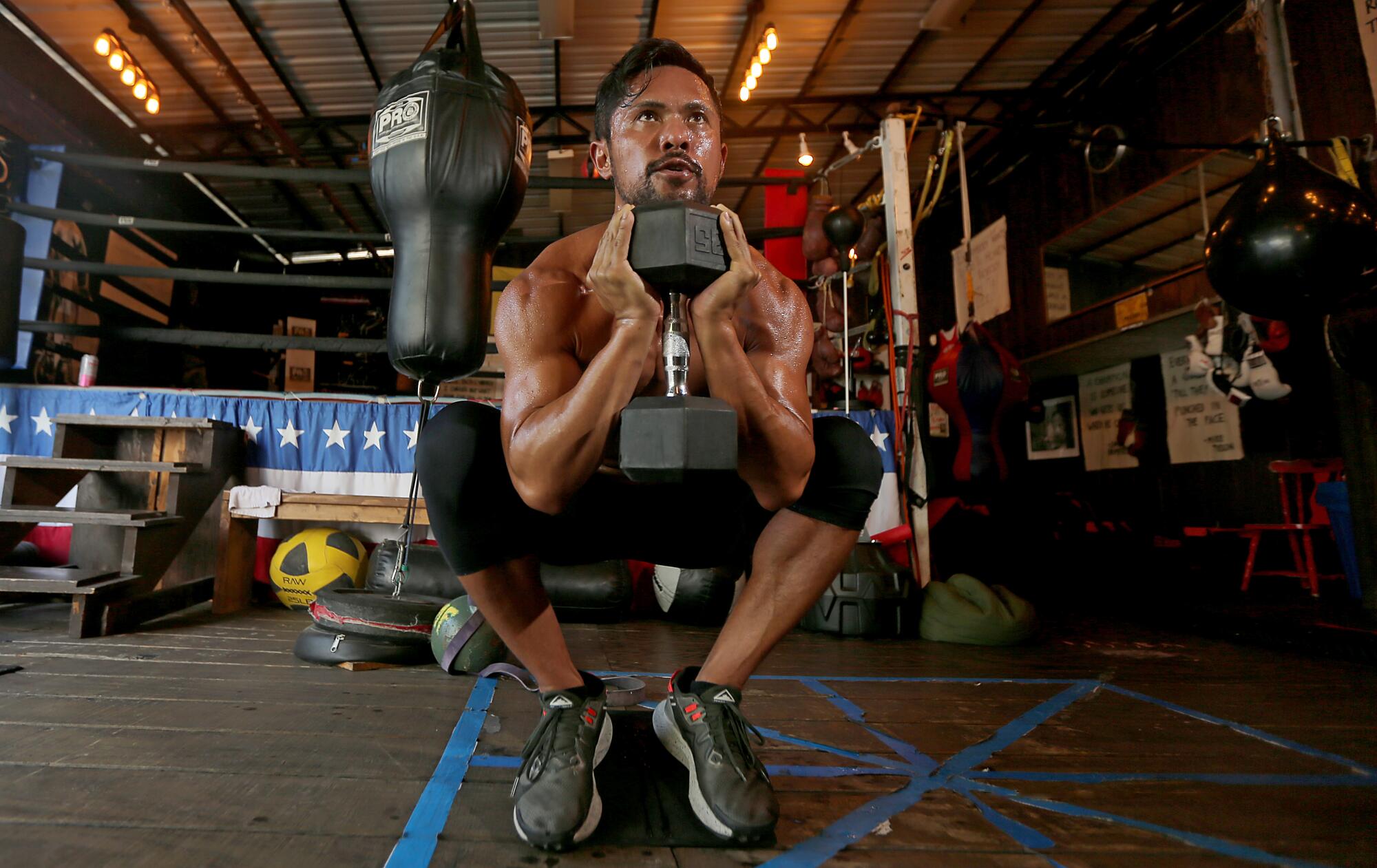
Relampagos was born in Quezon City in the Philippines. He moved to California on his 6th birthday.
“I remember my mom looking at me on the airplane and being like, ‘America is your gift. Happy birthday,’” he said.
He was ecstatic. But looking back, it was also “the beginning of knowing what it was like to feel different.” He had a thick accent. He struggled to make friends. His parents were going through a divorce. He felt alone.
At home, there were explicit expectations. He has four sisters, and he joked that “as a Filipino son, you’re the doctor, and your sisters will become nurses.” His parents had given up their banking careers to come to America and work as a used car salesman and cashier.
He had an intense fear of disappointing them. There was always an underlying expectation, he said, that “your parents were making the sacrifice for you, so eventually, when you get older, you have to make sacrifices for us.”
It made him feel anxious, depressed and unworthy.
“What happens as a kid is that you start to create these beliefs,” he said. “And my top belief as a child was that I wasn’t good enough.”
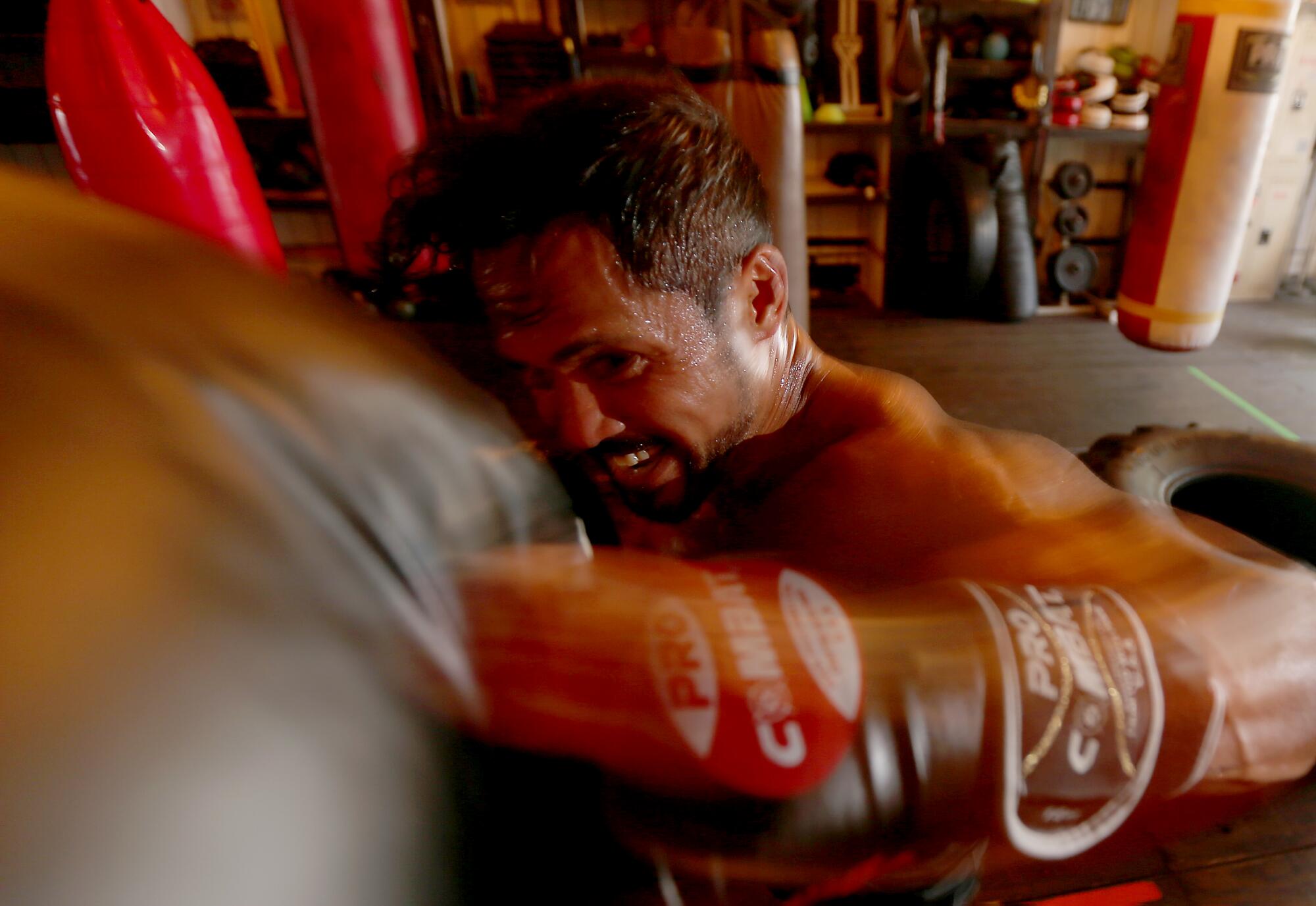
From a young age, he also understood that he had secrets.
The first secret was that he’s gay. While in college at UCLA, he came out in the splashiest, most Hollywood way.
After his father survived a heart attack, he realized it was important to him that his father knew who he really was. He saw MTV was casting for a documentary called “True Life” and looking for coming out stories.
He wrote to MTV about how he grew up in a strict Catholic home, and he wanted to come out of the closet to show other kids, especially Filipino American kids, that there was nothing wrong with them. Two weeks later, MTV came to film him for a month, and he came out to his family on national television.
“When the show came out, I realized the power of storytelling, because there were other kids that were coming up to me saying, ‘You changed my life’ and ‘You saved my life.’”
This revelation led to the second truth he needed to admit to his parents: that he didn’t want to be a doctor. He dropped out of college to become an assistant at MTV.
“A big reason why I got into reality TV was to help other people tell their stories, the same way that a producer from MTV helped tell my story about coming out,” he said. “I think the other reason why I got into television was that it literally was about validation — and ratings. And that was something I didn’t receive growing up, feeling validated.”
As a young adult, he threw himself into work, making money and bringing in ratings for his shows.
“Growing up in a household where you don’t talk about mental health, you don’t know what coping skills to have as an adult,” he said. “So my first coping skill as an adult was to just focus on work and become successful. My other coping skill was alcohol.”
This was his third secret, one he held onto for a long time.
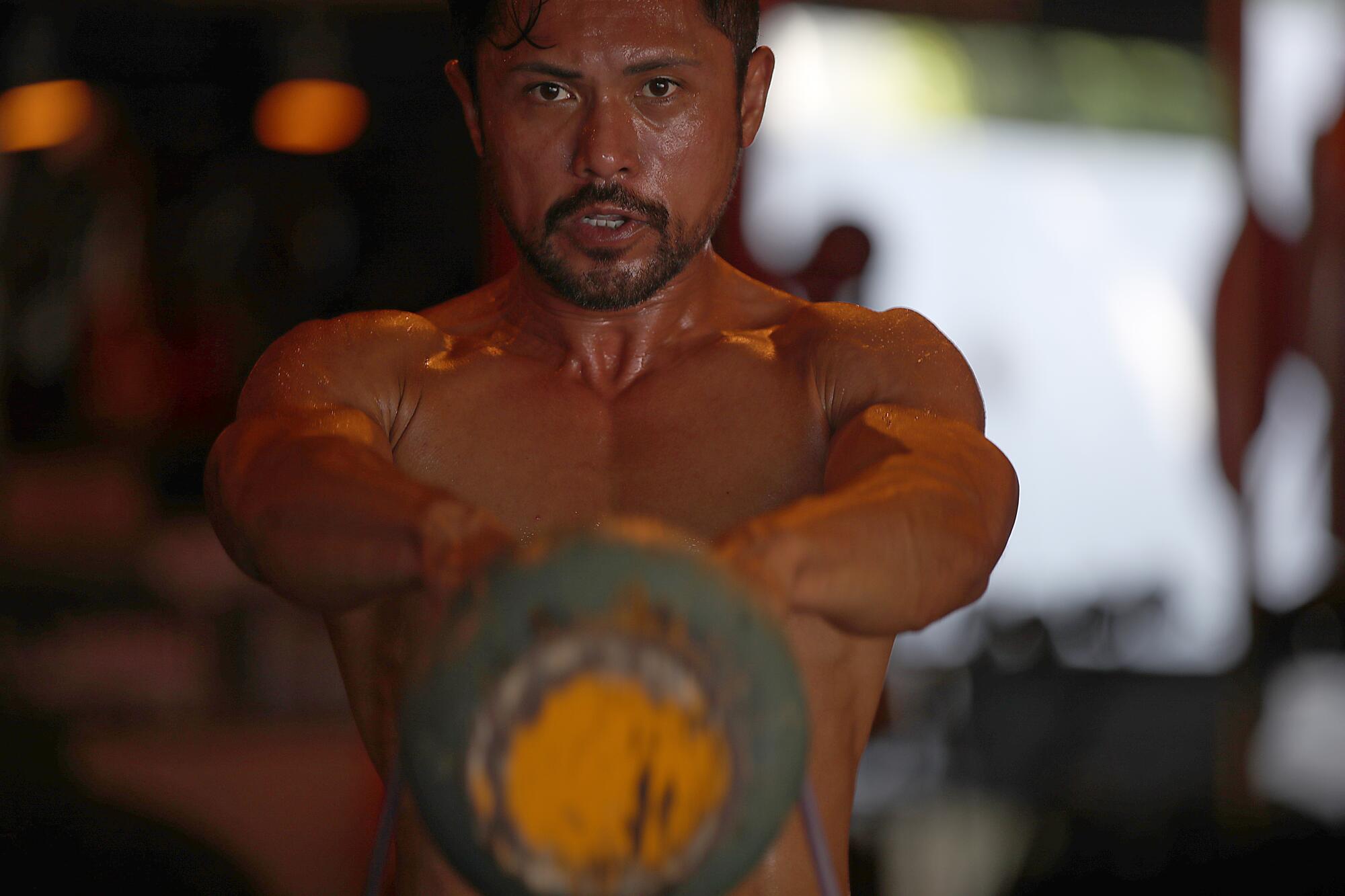
Social drinking in Hollywood, especially as a young adult, is a norm, he said. But he would travel for work, drink alone in the hotel and go out of his way to hide the empty bottles from the cleaning staff. Even when he started therapy for depression and anxiety, he never told his therapist about his drinking.
He reached a breaking point where he did what he thought he’d never do: He asked his Filipino American family for help.
At that point, it was a choice between being seen as a failure or spiraling further. He confessed to his father that he had a problem.
“Vulnerability was something that I wasn’t used to,” he said. But “vulnerability really is a strength. ... It takes strength to actually go, ‘I need help.’”
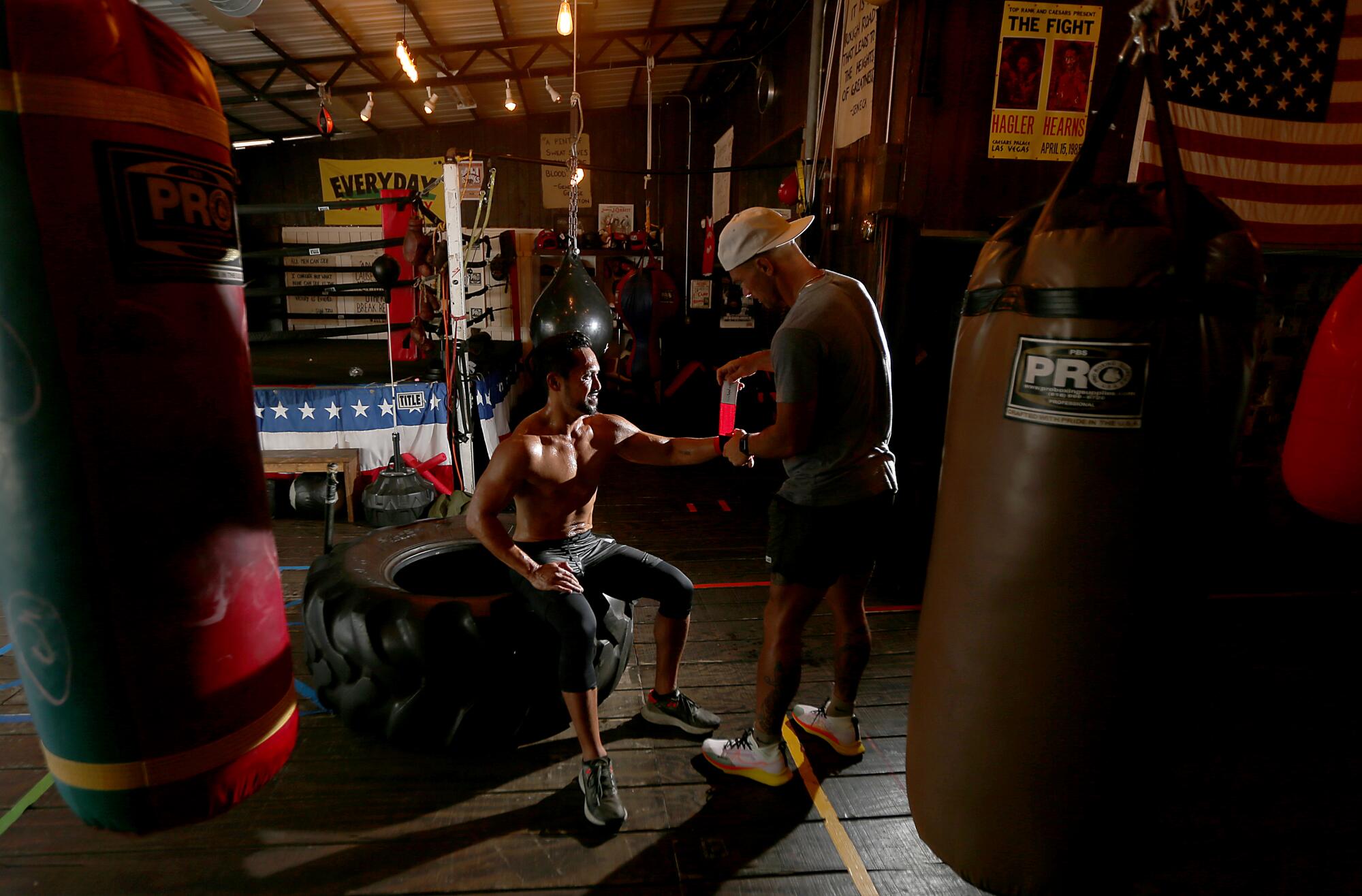
Relampagos said he was terrified of rehab because he didn’t know what to expect.
“I was such a control freak,” he said. “Going into rehab, I felt like I was a contestant on one of my own reality TV shows. Because I had to turn in my keys and my car and go into a facility where I couldn’t leave. There were surveillance cameras everywhere and a bunch of strangers, and here I am spending however many weeks with them.”
The first part was physical detox.
“As someone who had been drinking for 17 years, that first week, I was going through major withdrawals,” he said. “Luckily there was a medical team and therapists who were helping me get through it — literally get it out of my system.”
But afterward, it became more of a psychological journey.
He had to realize that his previous ways of dealing with his deeply-rooted belief that he wasn’t good enough — working hard to become successful, drinking to numb the pain, avoiding thinking about his insecurities — were not working. He needed new coping skills.
Southern California mental health resources for Filipino Americans
SIPA (Search to Involve Pilipino Americans)
(213) 382-1819, Ext. 125
Center for the Pacific Asian Family
(800) 339-3940
APAIT Health Center
(213) 375-3830 (L.A. office)
(714) 636-1349 (Orange County office)
OCAPICA (Orange County Asian Pacific Islander Community Alliance)
(714) 636-9095
Pacific Asian Counseling Services
(310) 337-1550
Change Your Algorithm
(323) 663-8882
Rehab provided him with what he called the “Avengers of therapists.” He learned about mindfulness, cognitive behavioral therapy, emotional freedom technique and hypnotherapy.
“I was like Ariel in ‘Little Mermaid’ exploring everything [about being human], how she was so excited,” he said.
When he left rehab after 50 days, he was grateful for his time there but aware that he was coming from a position of privilege. He could afford to spend tens of thousands of dollars out of pocket to save his life.
Others, he knows, cannot.
“I made it a mission to create some sort of program where I would find a team of therapists to volunteer their time and services to lead group classes — the same way I experienced group classes in rehab,” he said.
He called the program Change Your Algorithm, because “when you’re depressed and anxious, that kind of becomes your algorithm, like in social media,” he said. “You kind of abide by it, thinking, ‘I’m always going to be sad. I’m always going to hate myself.’”
But he wants people to know that’s not true.
When Change Your Algorithm launched in June 2020, only three people joined the virtual class. But now the nonprofit offers several classes a week for up to 40 people at a time.
“You show up, you can have your camera off, and you don’t even have to talk,” he said. “... But when you start to feel comfortable you can ask questions, you can interact with the other community members. And our number one rule is no judgment. Replace judgment with compassion.”
Relampagos wants people to understand that therapy exists in different forms. He needed hypnotherapy to lower his walls, and he loved hypnotherapy so much that he recently became a certified hypnotherapist. For others, group therapy or art therapy could be more effective.
And he’s also finding solace in his six-day-a-week boxing routine.
“In rehab, they say feeling is healing,” he said. “So when I’m working out and think, ‘I just want to give up. This is too hard.’ I go, ‘This is actually making me stronger.’”
He transfers this philosophy to his emotional well-being as well. When he’s feeling an uncomfortable emotion, he tries to figure out where it’s coming from, where he’s feeling it in his body and what it’s trying to teach him.
Whether you’re recovering from an addiction or just dealing with life’s daily stressors, that’s a lesson that can benefit anyone.
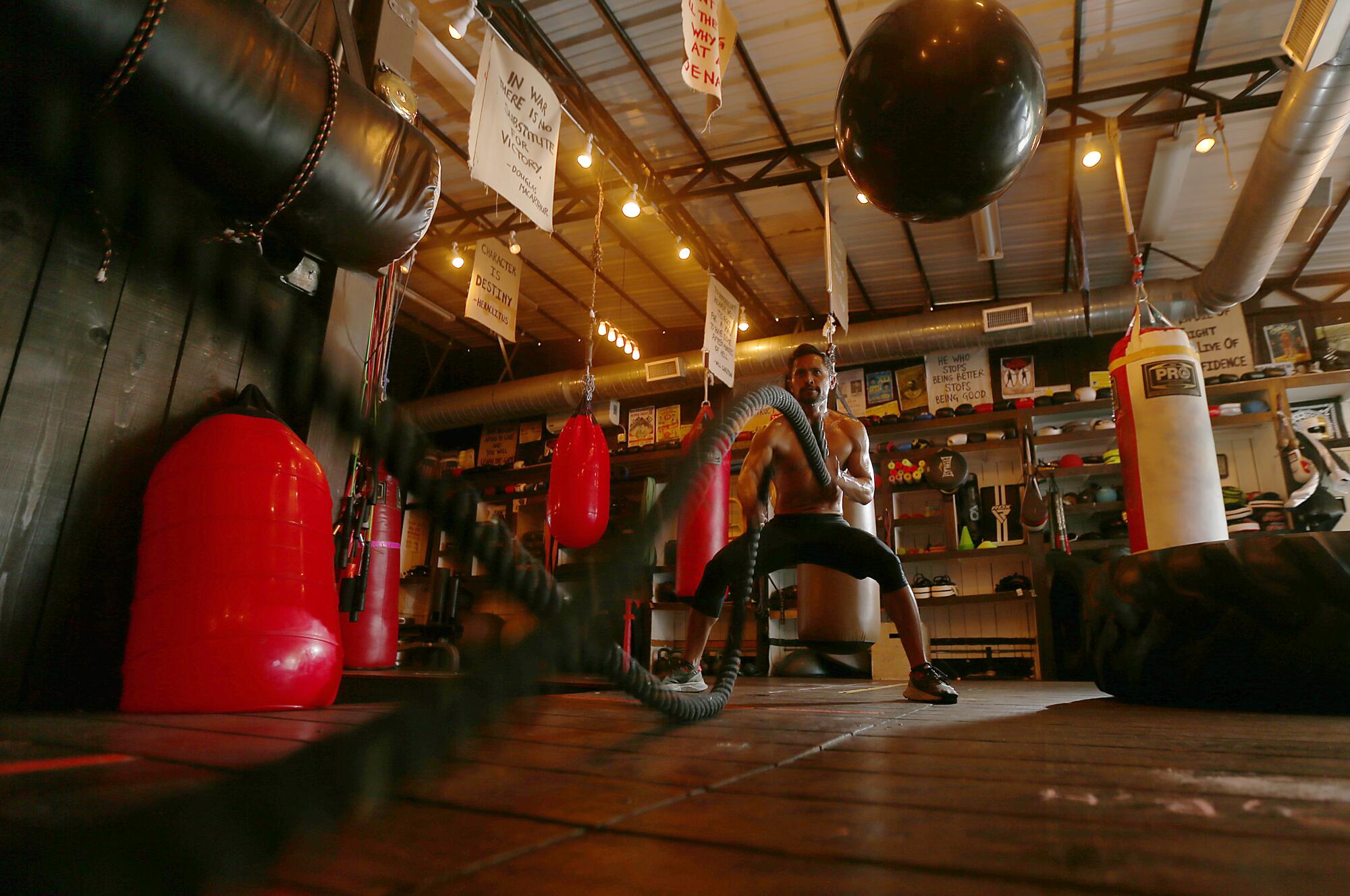
This is a collection of articles about mental health in the Filipino American community and the factors that influence it.
More to Read
About this story
The project is led by Agnes Constante, a 2021-22 fellow. Audience engagement by Maneeza Iqbal. Follow Constante’s newsletter to get updates about the project.
Sign up for The Wild
We’ll help you find the best places to hike, bike and run, as well as the perfect silent spots for meditation and yoga.
You may occasionally receive promotional content from the Los Angeles Times.
